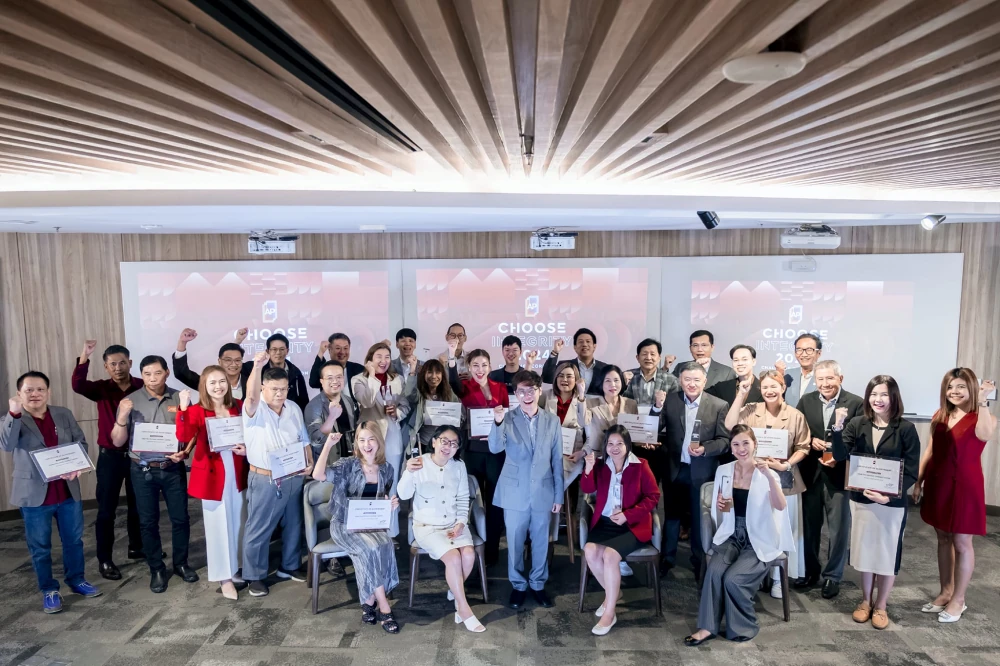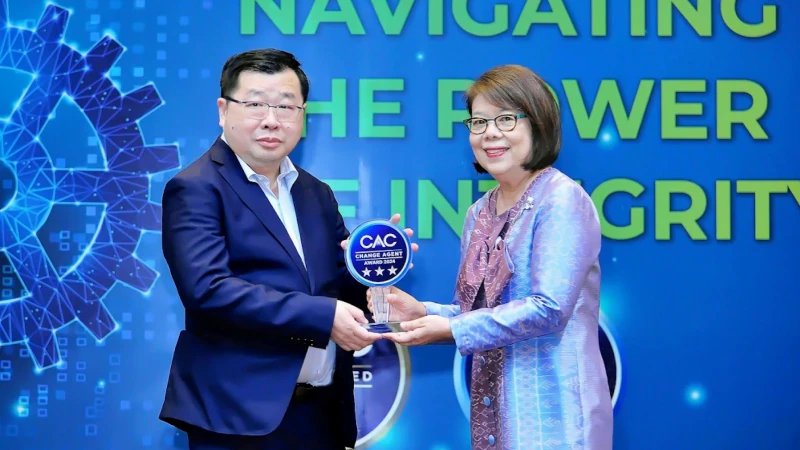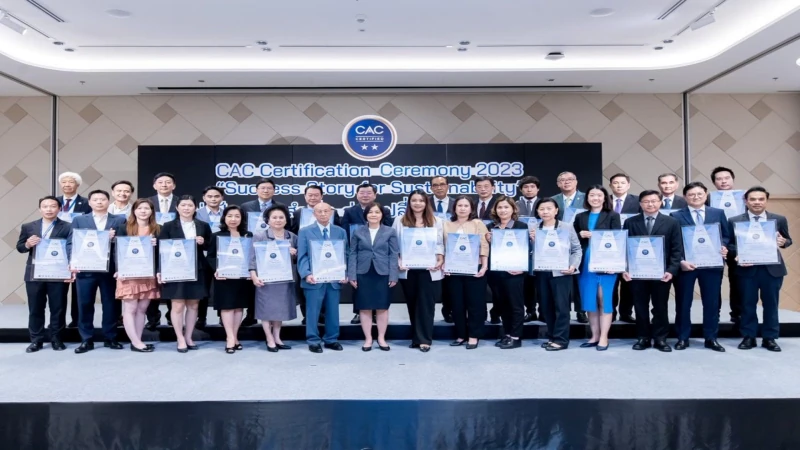
Corporate Governance
Goals
Performance Highlights
Our Commitment
In an era marked by rapid technological and social change, good corporate governance has become a critical factor in ensuring organizational stability and long-term sustainability. Transparent and accountable operations require clear disclosure of business practices, financial information, and decision-making processes. Such transparency is essential for building trust among shareholders and stakeholders.
Establishing a transparent reporting system reduces the likelihood of conflicts and future problems, while also supporting the organization’s long-term growth. Active stakeholder engagement—by involving shareholders, employees, and customers in the decision-making process—strengthens governance. Compliance with legal and ethical standards helps mitigate legal risks and fosters a strong organizational culture. Effective risk management is also vital, ensuring the organization is prepared for unforeseen circumstances and can prevent future issues. Promoting sustainability across economic, social, and environmental dimensions not only conserves resources but also enhances the organization’s public image.
Looking ahead to 2024, effective corporate governance must integrate key principles: transparency, participation, legal and ethical compliance, risk management, and sustainability promotion. Adhering to these principles not only contributes to financial success but also builds lasting trust and strong relationships with all stakeholders.
Supporting the SDGs Goals
Stakeholders Directly Impacted
Challenges and Opportunities
The real estate industry is facing rapidly changing paradigms both globally and nationally. Uncertain economic growth, interest rate volatility, and continuously evolving consumer demands are all factors that impact approaches to business operations. AP Thailand therefore, recognizes the importance of adapting to keep pace with these situations.
In addition to regulatory pressures, the real estate business faces heightened expectations from consumers who increasingly prioritize the quality of life, environment, and sustainability. Current residents are looking for housing that can accommodate flexible lifestyles, with smart systems that provide convenience, and better health standards. The company's ability to respond to these needs is therefore a key factor in its competitiveness.
Although there are many challenges, creating an environment that meets modern lifestyle needs enables the company to sustainably add value to its projects.
Furthermore, building collaboration with various sectors; government agencies, private sector, and clean technology developers, also helps the company drive innovation that benefits the industry in the long term.
Management Approach and Value Creation
AP Thailand is committed to elevating corporate governance standards to align with good, transparent, and auditable governance principles to build confidence among shareholders, investors, business partners, customers, and all stakeholder groups. The company is well aware that managing with ethical principles, transparency, and accountability is a crucial foundation that leads to sustainable business growth.
The company operates under a clear corporate governance structure, emphasizing the role of the Board of Directors in setting direction, strategy, and efficient management. The company also prioritizes developing practices that enhance organizational long-term competitiveness. The company places importance on recruiting directors and executives with the appropriate qualifications, knowledge, capabilities, and experience to effectively drive the business. They are also responsible for overseeing risk management systems and internal controls to ensure compliance with international standards.
AP Thailand has consistently undergone governance assessments by external agencies and remains committed to adopting practices that uphold the highest standards, particularly in areas such as fair and transparent executive compensation, responsible tax management, and robust anti-fraud and anti-corruption measures. The objective is to support the company’s growth steadily and ethically.
Recruitment of Directors and Top Executives
AP Thailand conducts business under good corporate governance principles with the believe that an effective governance system shall lead to stable and sustainable organizational growth in the long term, while also being a key factor in building confidence among all stakeholders.


Corporate Governance Structure
The company has a corporate governance structure consisting of the Board of Directors and committees, including the Audit Committee, Risk Management Committee, Executive Committee, Corporate Governance and Sustainability Development Committee, and Nomination and Remuneration Committee. Each committee has clearly defined roles and responsibilities in overseeing strategic aspects to ensure corporate governance is conducted rigorously and transparently.
Director Nomination Process and Appointment
The Board of Directors considers director qualifications based on factors including educational background, expertise, and experience that will benefit the company's business, as well as alignment with the Company's business strategy. The process ensures diversity of skills and expertise that corresponds with the company's strategic direction.


Board of Directors’ Skills
The company prepares a Board Skill Matrix to verify the completeness of necessary skills and knowledge of the Board of Directors in various areas, including:
- Real estate
- Law
- Business administration
- Finance and accounting
- Engineering
- Economics
Duties and Responsibilities of the Board of Directors
The Board of Directors plays a crucial role in defining the company's vision, mission, and strategy, while overseeing operations to ensure they align with objectives and create sustainable value for shareholders and stakeholders, including risk oversight, financial transparency, compensation management, and sustainability governance across various dimensions.


Performance Evaluation of the Board of Directors
The company conducts performance evaluations of the Board of Directors, sub-committees, and individual directors at least once a year, using criteria that align with international best practices. The results of the latest evaluation show that the Board of Directors has performed efficiently and achieved all the objectives established.
Sub-Committees
AP Thailand places importance on good corporate governance and efficient operations through a transparent and auditable management structure to ensure the company's business operations are conducted efficiently and in accordance with international governance best practices. The company has therefore established sub-committees to help oversee and enhance the management capabilities of the Board of Directors.

The company's sub-committees have primary responsibilities in supporting the operations of the Board of Directors in various areas, particularly internal control, risk management, sustainability-related strategy formulation, executive recruitment and compensation consideration, as well as general management. The sub-committees perform oversight duties in their respective areas of expertise and regularly report their performance results to the Board of Directors.
The company's sub-committee structure
Audit Committee has the responsibility to oversee internal control and compliance and promoting compliance with legal requirements in accordance with international internal audit standards, monitor work performance, recommend improvements to risk management systems, in order to strengthen transparency and robust auditing.
The committee establishes criteria and processes for director nomination, reviews and considers structure to align with organizational performance.
The committee establishes ESG (Environment, Social, Governance) direction and policies, including supporting and monitoring compliance with national and international standards to ensure the Company conducts business in a balanced manner.
The committee considers and promotes management frameworks covering various risks, assesses reports, provides advice on emerging risks, and continuously monitors risk management results.
Executive Committee has a strategic role and oversees operational-level activities, reviews budget, determines corporate structure and operations to ensure the company's operations align with established plans and objectives.

Tax Management
The Company is steadfastly committed to full compliance with all applicable tax laws and regulations, as well as the lawful utilization of tax incentives. It adopts appropriate tax structures designed to prevent tax avoidance, in line with its established tax policy and principles of good corporate governance.
Throughout the fiscal year of 2024, the Company has strictly adhered to its code of ethics and tax policy by avoiding the use of fraudulent or improper tax arrangements and refraining from implementing overly complex tax structures aimed solely at securing preliminary tax advantages that may result in tax avoidance risks. The Company takes responsibility toward its shareholders by maintaining sound financial health and implementing a tax management framework that sustainably enhances shareholder value. In managing tax risks, the Company prioritizes responsible tax practices by rigorously observing all relevant laws and regulations. It promotes transparency in tax matters through comprehensive disclosure in accordance with legal requirements across all jurisdictions where the Company operates.
This transparency is extended appropriately to all stakeholders to ensure a clear understanding of the Company’s tax practices by shareholders, business partners, and the communities in which it operates. Furthermore, the appointment and remuneration of external auditors are subject to review and approval at the Company’s annual general meeting of shareholders.
Anti-Corruption
The company is committed to conducting business with honesty, integrity, transparency, and ethics under a good corporate governance framework with responsibility to communities, society, the environment, and all stakeholders. The company gives full support to the fight against corruption in all forms, both direct and indirect. Since corruption is a significant issue that may impact the sustainability of the company, and even the economy, society, and the national level. The company has therefore established written anti-corruption policies and measures, including defining important operational procedures to support transparent, fair, and auditable work processes.


Organizational Commitment
The company is a member of the Thai Private Sector Collective Action Against Corruption (CAC) and has continuously maintained its membership certification, with regular monitoring, review, and development of policies and anti-corruption measures to align with laws and international best practices.
Policies and Practices
The company has established written anti-corruption policies and measures, stipulating that directors, executives, and employees shall not be involved in corruption, both directly or indirectly, whether through offering, promising, demanding, requesting, giving, or receiving bribes, or engaging in any behavior that tends toward fraud or corruption, including not neglecting or turning a blind eye when witnessing acts that constitute corruption related to the company's business.
Furthermore, the company has established important operational procedures and practices to ensure work processes are transparent, with annual policy reviews to ensure all parties adhere to the company's code of ethics and jointly create an ecosystem of integrity through communication and public relations via the company's internal website, sending emails to all employees. New employees are assigned to learn about anti-corruption policies.

The company places importance on training 100% of new employees on anti-corruption while continuously raising awareness and understanding among employees and executives at all levels, with clear practical guidelines and content that is updated to be current and relevant to real situations. The objective is to instill ethical awareness and encourage employees to make decisions and operate correctly within the legal framework.
Whistleblowing Channel











